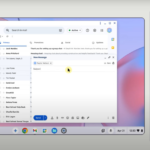Spotify is going all in on video.
The company will soon begin paying creators based on how much engagement their videos receive from paid subscribers. Automated ad breaks in videos will also be turned off for paid Spotify subscribers to encourage more consumption. Both of these changes go into effect starting January 2nd, 2025 in the US, UK, Australia, and Canada.
Paying video creators directly based on engagement puts Spotify on more of a collision course with YouTube, which is also leaning into podcasts and already pays its creators billions a year in shared ad revenue. “We can provide an experience for your audience that is superior to any other platform,” CEO Daniel Ek said onstage Wednesday at a Spotify creator event in Los Angles.
Since Spotify made video podcasts widely available in 2022, consumption of the format has skyrocketed, with the number of video creators on the platform more than doubling each year. There are now over 300,000 video podcasts on Spotify, up from 250,000 in late June, and “video consumption hours have grown faster than audio-only consumption hours year-over-year,” according to company spokesperson Grey Munford.
Creators will be able to access their payout details in a hub called Spotify for Creators, which will also help them determine if they’re eligible for video payments and offer more advanced analytics along with the ability to upload short, vertical video clips.
There’s uncertainty about how much Spotify plans to pay video creators, however. The company isn’t explaining exactly how it calculates video payouts, though Munford said creators will be able to see their breakdowns in the Spotify for Creators hub.
“It is consumption based and it is competitive with what they’re doing today,” Spotify co-president Gustav Söderström told The Verge when asked if the company’s payouts to creators will be similar to what they make on other platforms. “Otherwise, it makes no sense for them.”
Update, November 13th: Added comment from Gustav Söderström.
Read the full article here














